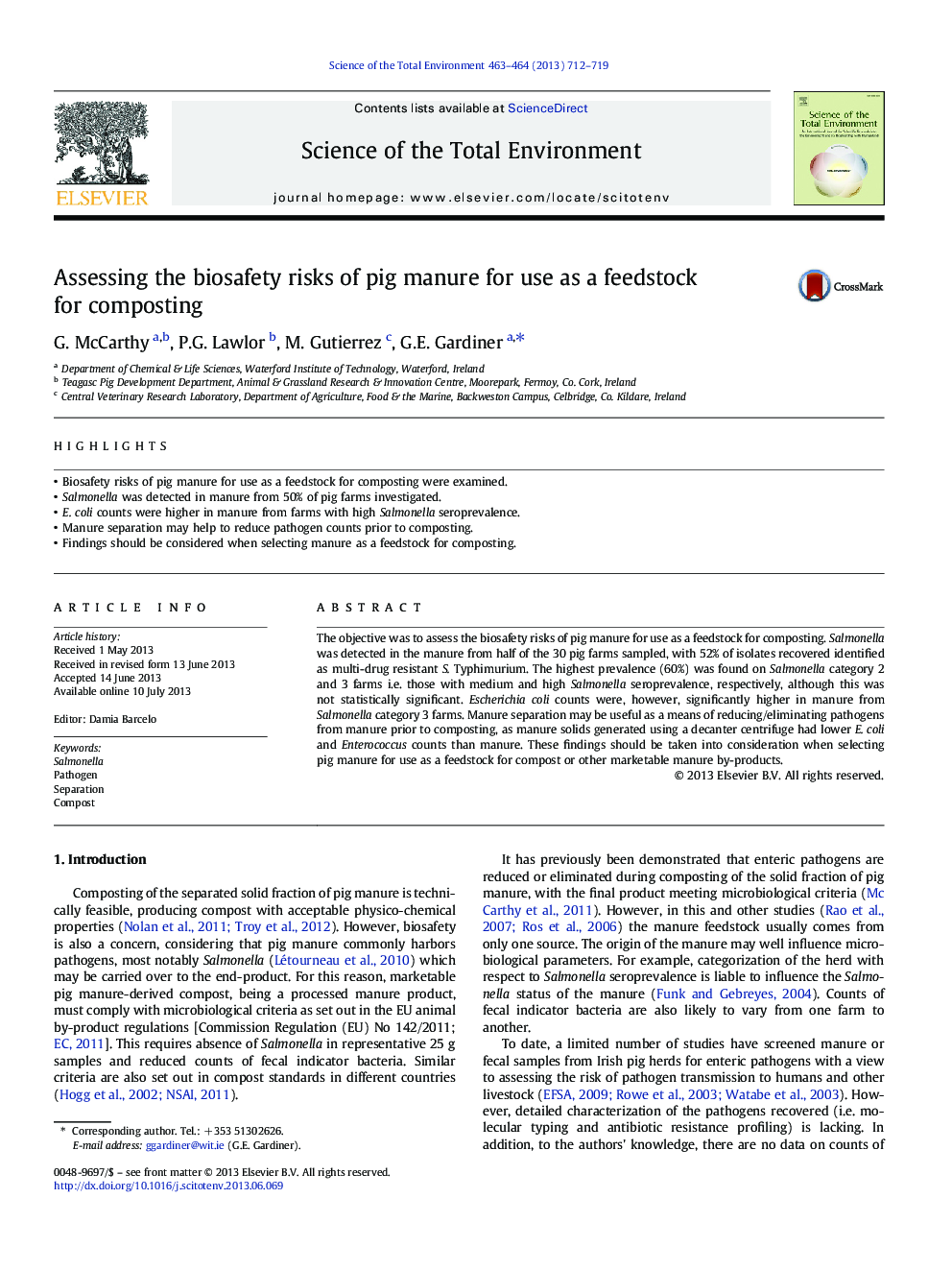| Article ID | Journal | Published Year | Pages | File Type |
|---|---|---|---|---|
| 6332903 | Science of The Total Environment | 2013 | 8 Pages |
Abstract
The objective was to assess the biosafety risks of pig manure for use as a feedstock for composting. Salmonella was detected in the manure from half of the 30 pig farms sampled, with 52% of isolates recovered identified as multi-drug resistant S. Typhimurium. The highest prevalence (60%) was found on Salmonella category 2 and 3 farms i.e. those with medium and high Salmonella seroprevalence, respectively, although this was not statistically significant. Escherichia coli counts were, however, significantly higher in manure from Salmonella category 3 farms. Manure separation may be useful as a means of reducing/eliminating pathogens from manure prior to composting, as manure solids generated using a decanter centrifuge had lower E. coli and Enterococcus counts than manure. These findings should be taken into consideration when selecting pig manure for use as a feedstock for compost or other marketable manure by-products.
Keywords
Related Topics
Life Sciences
Environmental Science
Environmental Chemistry
Authors
G. McCarthy, P.G. Lawlor, M. Gutierrez, G.E. Gardiner,
